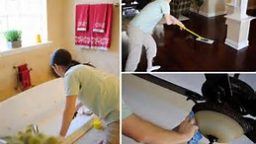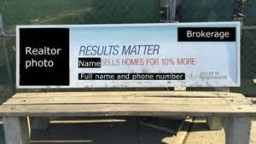The function of a homeowners association (HOA) is to protect and enhance the common areas of that association. Homeowners associations can consist of anything from 10 to 3,000 homes, which could be single-family, townhomes, condos, or a mix. The HOA might be responsible for common walls, roofs, driveways, landscaping, decks, balconies, HVAC, and plumbing. They maintain pools, clubhouses, tennis courts, fitness centers, charging centers for electric cars, and sometimes even streets. An HOA’s budget, and its legal exposure, can be huge. Jim Laumann, president of HOA-USA.com, explains that beginning agents should learn how homeowners associations operate, and should get acquainted with HOAs in their territory.
Do your research
“Our organization, HOA-USA.com, provides education, support, and referrals for board members of the 351,000 HOAs in the United States,” Laumann explains. “Thirty percent of HOAs are professionally managed by a management company. Fifty percent are self-managed. Twenty percent are dysfunctional—they don’t hold annual meetings, don’t elect officers, don’t collect assessments, and don’t enforce covenants—but they’re still legally incorporated nonprofits, so they can still face liability issues.
“If you’re representing a home buyer who’s looking into a property that’s part of an HOA, you’ll need to know where to find the covenants, the by-laws, and the financial statements. Most buyers know nothing about the HOA till they move into the community and discover, ‘Oh my God, we just moved into our dream home in the neighborhood from Hell.’ The educated buyer should see the HOA’s financial documents, the profit/loss, the balance sheet, and the reserve fund, before committing to a purchase.”
As the real estate agent, you need to have contact information for the homeowners association, Laumann says. Procuring this can be a challenge. If the HOA is professionally managed, you should connect with the management company, as well as with the board.
“Start by going to your state’s Secretary of State website and looking up the corporation,” he advises. “Then google the name of the community, see if they have a website. Finding the information and getting the documents will be your biggest challenge.”
Understand the risks involved
“Buying a home that’s part of an HOA is a big risk if you haven’t read the governing documents and the financials,” Laumann says. “If there are amenities like tennis courts and private streets, are they being maintained? If not, the HOA probably has money issues. Most important are the restrictive covenants—such as one that might not allow you to park your boat or RV in the driveway, or build a shed or playhouse—and age-restricted associations.”
If the covenant says no children, Laumann cautions, and the owners discover that after they’ve bought the home, tough luck about having the grandchildren stay for the summer. An owner may not be able to sell the home to just anyone, and if they put the property in their will, the heirs might not be able to move in, nor sell it to anyone who’s not within the age restriction.
“With self-managed associations, you might find that nobody wants to serve on the board, collect the assessments, or enforce the covenants,” Laumann concludes. “It keeps getting worse till the roof leaks and the pool needs huge repairs, so you have to go to special assessments—in the thousands—and that’s going to especially annoy the people who have just bought a property.
“More than 80 percent of homeowners are happy with their HOA. But I can’t stress enough the importance of doing research on the HOA before buying a home, and it’s incumbent on the agent to do some of the research if you’re representing a client.”
Get to know homeowners associations near you
If you’re starting your career as a real estate agent, get to know homeowners associations in your area. Study their rules, study their financials, introduce potential buyers to them—and make sure that they know what they’re getting into. Technically, that’s not your job. But if you make it your job, you’ll enhance your reputation for honest dealing.
About the author
Joseph Dobrian has been writing about commercial and residential real estate, and real estate-related finance, for more than 30 years. His by-line has appeared in The Wall Street Journal, The New York Times, The New Yorker, Real Estate Forum, Journal of Property Management, and many other publications. He is also a noted novelist, essayist, and translator.











